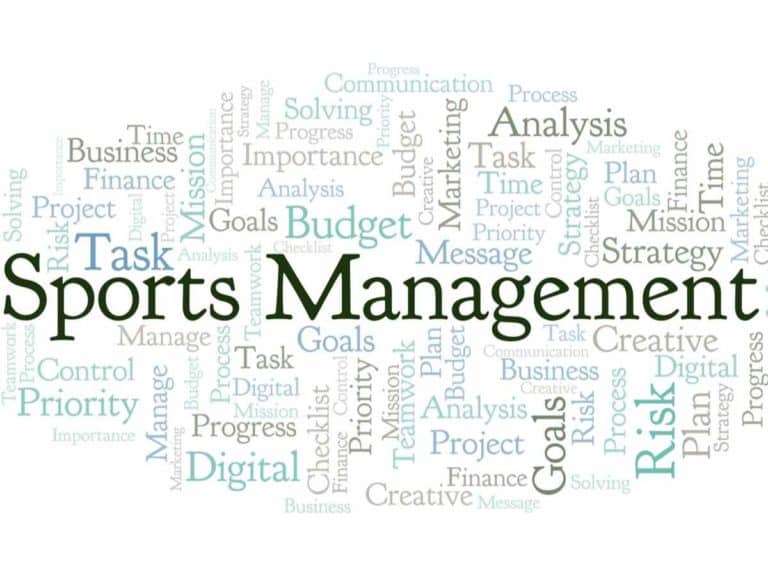How to Find Your Career: 12 Steps and Quizzes
Having the right career is key to attaining economic stability and satisfaction in life. To establish the right career path, however, you will have to consider more than just your major or educational background. It’s also important to factor in your personality type, interests, values, and skills, among other things, when determining which job to take.
In this article, we will talk about the different steps to take on how to select a career and provide links to various career aptitude tests (both free and paid).
1. Identify Your Personality Type
An individual’s personality type refers to the unique collection of traits and characteristics that define his or her ways of thinking or behaviors, thus creating a distinct pattern of thoughts and actions.
Even though many people think that traits and personality types are one and the same, they’re not.
Traits are distinguishing characteristics or qualities of a person.
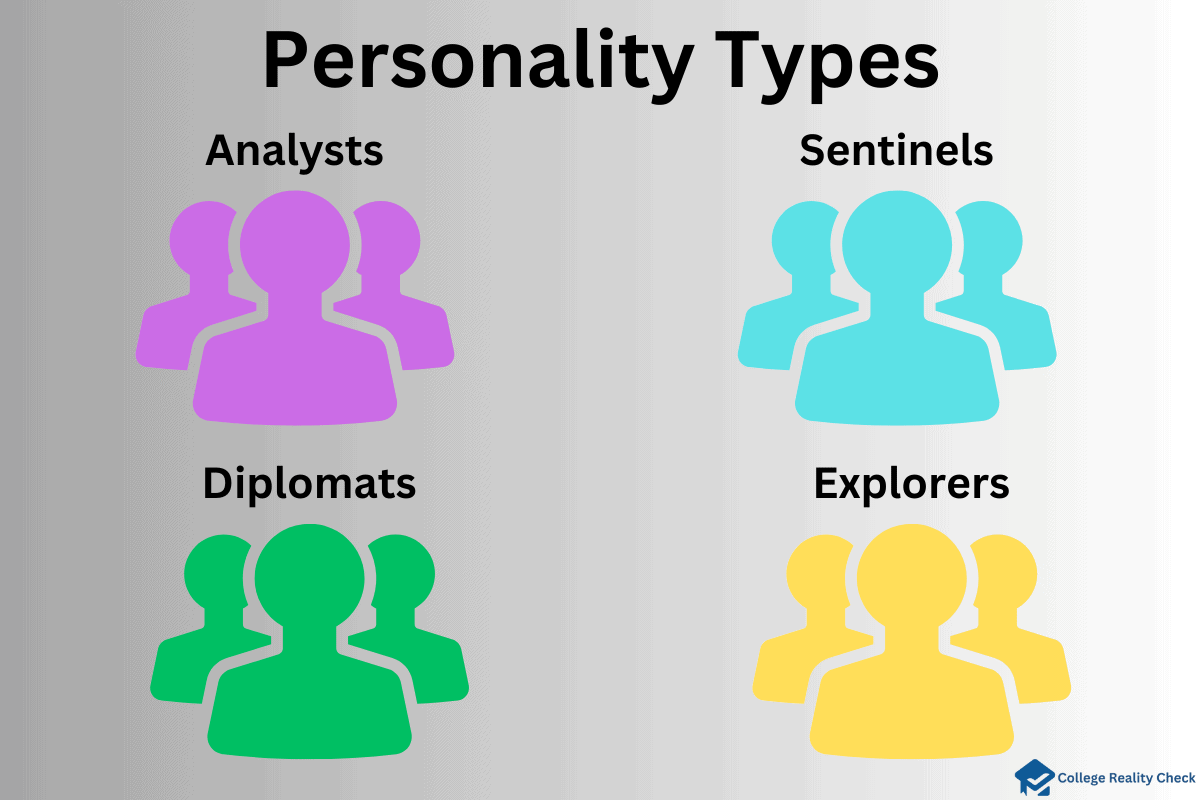
Over time, traits can change, and some of the things that can cause an alteration in them include significant life changes, such as getting married or getting divorced, and taking on new social roles, such as landing a new job or having to look after someone.
On the other hand, personality types embody a broader group of behavioral tendencies, including traits. Compared to traits that can be influenced by various factors, an individual’s personality trait tends to be more stable.
It doesn’t necessarily mean, however, that you are stuck with a particular personality type for life.
According to a report by the American Psychological Association (APA), personality types can also change, and they tend to do so across the lifespan of people.
As a matter of fact, it adds that even those who are 70 years of age or even older can still go through quite remarkable changes in their personality traits.
Some experts believe that habits, values and behavior patterns that lie just below the surface of the broad personality traits of an individual serve as the key to changing one’s personality.
The following are some of those that may lead to a personality change:
- Beliefs – Challenging your beliefs may cause a change in how you express your personality.
- Goals – Setting new goals may help redefine your temperament and priorities in life.
- Coping strategies – Learning different coping skills for stress and anxiety may affect your disposition.
Based on a study published by the US Department of Education, there is a significant relationship between personality type and career choice, which is why personality type should be taken into account in the career planning process.
As a matter of fact, it can also impact an integral component of most career paths: the college major selection.
So much so that, taking personality alone into consideration renders many other things that can influence a degree-seeking individual’s preference of area of study to specialize in at a postsecondary institution.
Just take a look at this conclusion derived by college professors for their college major choice analysis:
“In summary, we find that political views and the Holland personality scales are very strong predictors of student major choice. However, academic preparation, family influence and academic self-efficacy do not seem to matter after taking into account personality” (Porter, Umbach, 2006).
The vast majority of career tests, which we will talk about in a few (so keep reading!), suggest prospective jobs by considering the personality of test-takers.
Needless to say, you may take any of these examinations — of course, going for reliable ones — to determine your personality type if it’s something you cannot distinguish.
2. Find Out What Motivates You
Motivation refers to the driving force that causes an individual to act and make decisions in a certain manner.
According to an industrial-organizational psychologist and data scientist, the average person will spend around 90,000 hours at work over his or her lifetime, which is roughly equivalent to 10.5 years.
Meanwhile, over the course of his or her lifetime, an average person only spends about 368 days mingling with friends.
Because of the sheer amount of time that you will have to spend working, it’s recommended that you take on a day-to-day role in the workplace that can keep you satisfied and goal-oriented.
It’s not uncommon for most job applicants to be asked “what motivates you?” by interviewers.
While it’s a simple question that can be answered effortlessly since no one knows what gets you inspired and excited more than you do, it can easily become a complicated question that requires much thought given that it’s asked during a job interview and what comes out of your mouth can spell the difference between getting hired and being shown the door.
3. Determine Your Core Values
Core values are the fundamental and, therefore, highest-priority beliefs and principles of an individual that determine his or her behavior.
Not only do core values dictate a person’s conduct, but also determine paths taken in navigating the many challenges of life as well as various objectives and goals to achieve.
Money motivates people to work. As a matter of fact, when laborers are paid per work done, they tend to work harder and take fewer breaks to the point of endangering their health — all in the name of money!
But getting paid isn’t the only reason why workers show up at work.
A Psychology Today article talks about the so-called social reinforcement, which is just as powerful as money in encouraging employed individuals to carry out their duties and responsibilities in the workplace.
Not only does getting praises and adulations motivate people to work harder but also increases their interest in and involvement with their roles.
4. Determine Your Interests
Interests are things or concepts that a person is curious or concerned about and thus evoke his or her attention as well as cause a desire or will to pursue it to learn more about it.
Many people make the mistake of using interests and hobbies interchangeably.
Simply put, an interest is something that an individual finds desirable and stimulating enough for him or her to explore, with the potential of it becoming a pursuit.
A hobby, on the other hand, is an activity that the person is actively participating in regularly during his or her free time for either pleasure or relaxation or both.
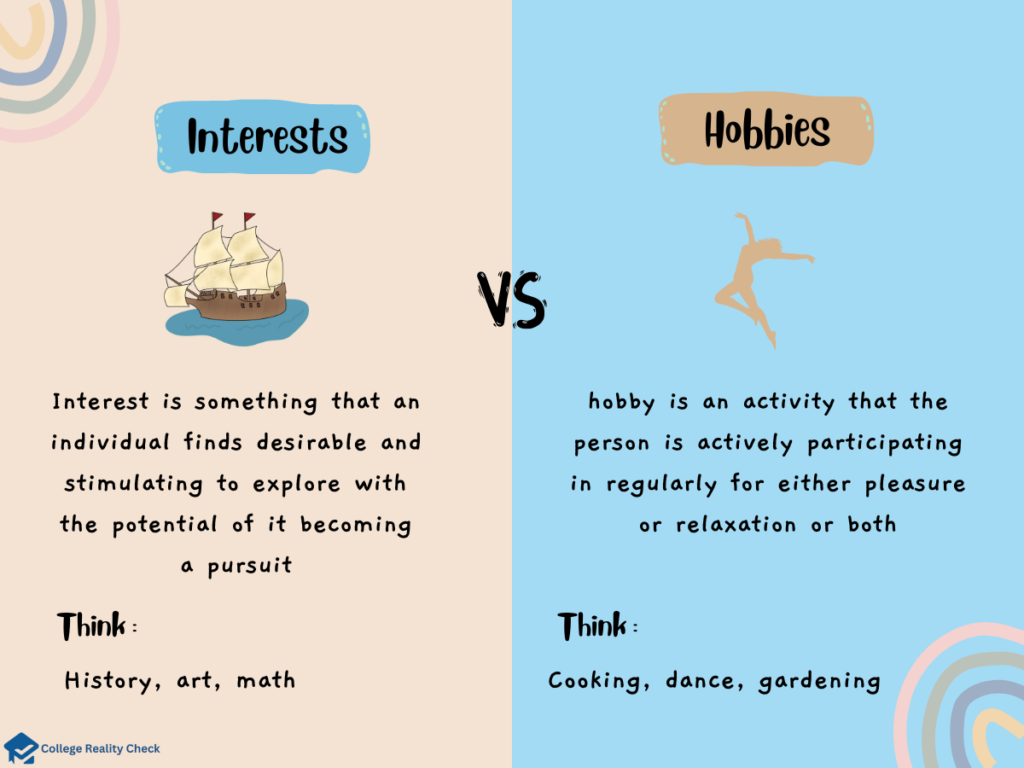
Interests, eventually, can become hobbies. Meanwhile, hobbies are always interesting to the person. Both interests and hobbies can be anything from leisure, artistic expression, learning pursuits, volunteering to cultural or religious practices.
Below are the top 5 reasons why considering your career interests is vital:
- Strategic career path
- Motivation
- Job satisfaction
- Career success
- Self-awareness and self-fulfillment
Although you may have no trouble enumerating your personal interests, pointing out career interests may not be as easy.
Case in point: people who take jobs without knowing whether or not they will like it.
To have an idea of what your career interests are, look into the following things and find a common theme:
- Hobbies
- Passions
- Things you’re good at
- Things you enjoy doing
- Previous experiences — work-related or otherwise
5. Lead With Your Strengths
Personal strengths are the skills and abilities of an individual that he or she can do well. They can include anything from communication abilities, problem-solving talents, technical expertise to leadership qualities.
Many personal strengths also count as professional traits, which allow a person to attain success in the workplace.
Leveraging your strengths can enhance your job performance and satisfaction, which ultimately leads to a successful and fulfilling career, given that people naturally prefer as well as enjoy doing things that they are good at.
Some examples of strengths that are especially advantageous in the workplace are the following:
- Adaptability
- Confidence
- Collaboration
- Critical thinking
- Decision making
- Design
- Discipline
- Empathy
- Imagination
- Leadership
- Logical reasoning
- Mathematics
- Open-mindedness
- Optimism
- Patience
- Positivity
- Presentation
- Public speaking
- Research
- Risk-taking
- Sense of humor
- Social media
- Time management
- Writing
It’s not uncommon for some people to have no idea what their true strengths are — you may either possess something that you have been unknowingly taking advantage of all this time or falsely believe that you are good at something you’re not.
Here are some tips on identifying your personal strengths:
- Look into your interests and passions
- Be open to feedback
- Take note of when you are most productive
- Examine your weak spots and failures
Asking “what could I become good at?” is better as it includes career options that may not appear as viable as others that align with your strengths trouble-free but could eventually make for wonderful personal fit jobs.
6. Examine Your Salary Requirements
A salary requirement is the amount of money an individual needs to be paid for him or her to accept a job offer.
While the inclusion of one’s salary requirement on the resume is a personal choice, it’s generally recommended to avoid it.
Most employers, anyway, ask job applicants to include their salary requirements on their cover letters — they want to determine whether to screen a person out for asking so much or offer him or her a lower salary for asking too little.
Several factors determine your salary requirements, and they include the following:
- Skills
- Industry
- Cost of living
- Previous work experience
- Salary history
Speaking of which, it’s not uncommon for some employers to ask you to indicate your salary history, either alongside your salary requirements or instead of your salary requirements.
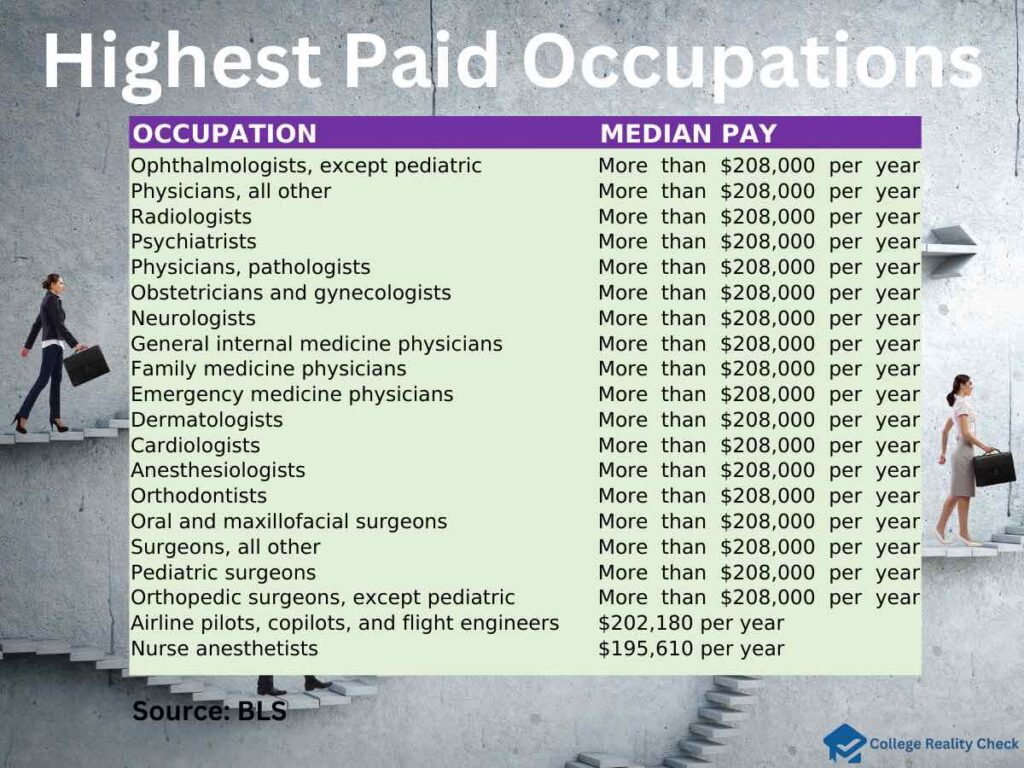
A salary history, basically, is a list of your earnings in the past with each job.
It typically includes information such as the names of the companies you have worked for, job titles, benefits packages and, of course, salaries.
Making a salary history different from a salary requirement is the fact that it specifies how much you made monthly or annually in your previous jobs instead of what you are expecting to make in your next job position.
7. Research Industries
An industry consists of a group of businesses or companies sharing some similarities in the products they manufacture and sell and in the activities they conduct for operation and profit.
Most working adults who are a part of the same industry tend to share a range of duties and responsibilities as well as, of course, qualifications, skills and experiences.
The US Bureau of Labor Statistics (BLS) lists more than 110 different industries.
On the other hand, the International Labour Organization (ILO), which is one of the first and oldest agencies of the UN that’s tasked with setting international labor standards, classifies industries in the sectors listed below:
- Agriculture, plantation and other rural sectors
- Basic metal production
- Chemical industries
- Commerce
- Construction
- Education
- Financial services and professional services
- Food, drink and tobacco
- Forestry, wood and pulp and paper
- Health services
- Hotels, tourism and catering
- Mining
- Mechanical and electrical engineering
- Media, culture and graphical
- Oil and gas production and oil refining
- Postal and telecommunications services
- Public service
- Shipping, ports, fisheries and inland waterways
- Textiles, clothing, leather and footwear
- Transport
- Utilities
8. Take Career Aptitude Tests
A career aptitude test is an assessment test, usually administered online, that asks questions about an individual’s skills, personality traits, values, interests and preferred tasks and then generates a list of potential careers based on the provided answers.
Needless to say, it gives you various job options you’d most likely excel or be happy in.
Many high schoolers who are preparing for the SAT or ACT take the PSAT or PreACT.
On the other hand, a lot of them who are gearing up for their postsecondary education careers at selective institutions take the SAT or ACT and even AP or IB exams either for college credit or placement or both.
You can think of career aptitude tests as similar to those standardized tests — while candidates are not required by employers to undergo any of them beforehand, they can prove to be beneficial for job applicants.
Later, we will talk about some of the most important matters you need to know about career tests — so read on!
9. Consider Education Required for Chosen Career
An educational requirement is the minimum qualification an individual must have to be considered as someone who is suitable and competent enough to hold a particular job position and carry out the corresponding duties and responsibilities.
For instance, American Public Media (APM) says that nearly 60% of all jobs today necessitate higher education.
A Truthout article, on the other hand, says that around 70% of new jobs require a college degree.
Certain jobs require specific qualifications.
Physicians, pharmacists, dentists, nurses, engineers, architects, lawyers — these individuals have met specific educational requirements to be in their current professions.
But then there are also jobs that you can get with just about any major.
Speaking of majors, the significance of focusing on the right area of study in college for the attainment of your career goal cannot be stated enough.
Here’s a link to a host of helpful article about college majors and minors, many of which can guide you in the selection process based on your interests, strengths, passion and personality.
It’s important to note, too, that many jobs do not require a college diploma.
As a matter of fact, a lot of them are some of the fastest-growing jobs of today, and, based on a CNBC report, some of them are the following industries:
- Consulting
- Human resources
- Marketing
- Media and communications
- Research
10. Take Internships
Internships are short- or long-term professional entry-level learning experiences that allow individuals, who are usually college students and graduates, to gain knowledge and skills related to their field of study or career interests.
There are a number of types of internships according to certain categories, and they are as follows:
- Based on pay – Paid internships and unpaid internships
- Based on duration – Part-time internships and full-time internships
- Based on location – In-office internships and remote internships
In some instances, internships serve as role players in the college major selection process of high school students.
“Further, a large majority of students (86%) wanted to learn about internship or other work experience opportunities available as part of a major. “ (Bobek and Schnieders, 2022).
Short-term internships are some of the most popular internships.
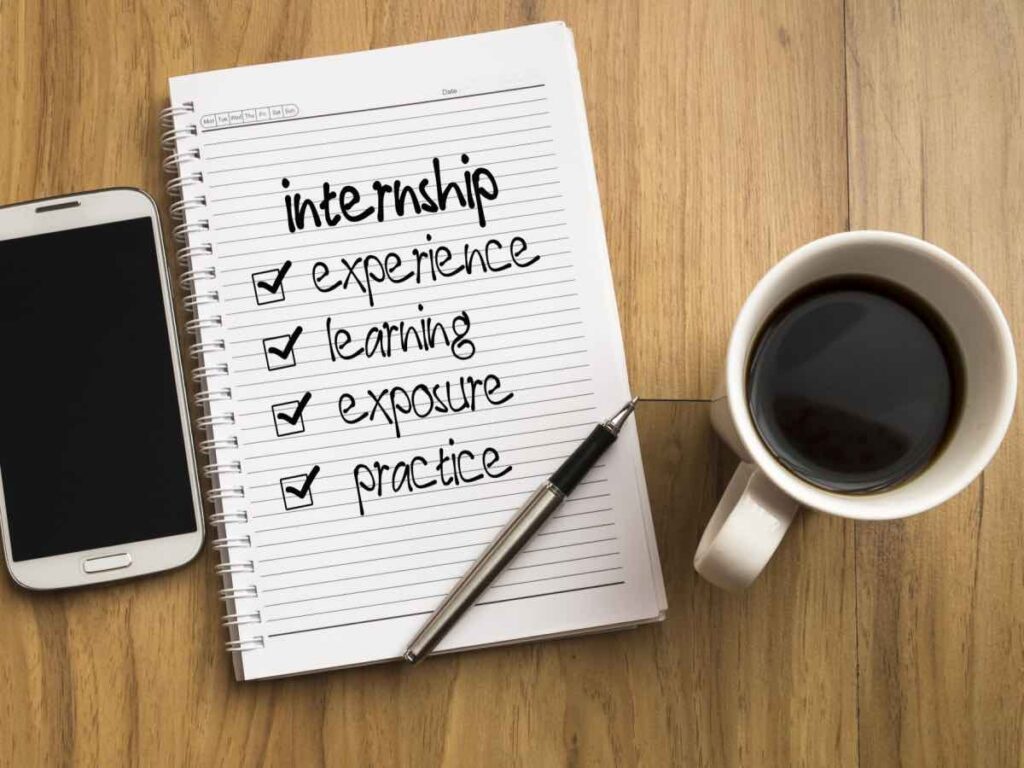
This is especially true among college students who would like to gain skills and experience to strengthen their resumes without any long-term commitment.
Typically, an average short-term internship lasts for around 3 to 4 months.
Taking on one internship opportunity after the other makes it possible for you to explore various career prospects — if you don’t like one, you simply have to wait for the current one to end and see whether or not the next one will suit you better.
Because an internship may appear in your work history, it’s a good idea to give it your best shot each time.
11. Think Long-Term
When it comes to deciding on a career, long-term thinking usually involves considering a job and how it fits into an individual’s overall career plan, which then allows him or her to see the bigger picture and thereby making it possible to take the steps necessary for a more satisfying and rewarding professional experience over a lifetime.
Thinking long-term as far as finding the right career goes comes with a number of benefits such as:
- Having a sense of career direction
- Gives purpose to day-to-day activities
- Staying motivated and focused
- Helps increase self-confidence and self-improvement
- Acquiring the necessary skills
- Building a stronger professional network
- Obtaining financial security
In order to see the stark difference between long-term goals and short-term goals, the following are some common examples of long-term ones that can take some time — years, commonly — to meet:
- Increase annual salary
- Obtain a leadership position
- Travel the world
- Earn another undergraduate or graduate degree
- Publish a book or research
- Win a recognition or an award
Check the following video from BLS to find out the future occupational employment projections:
12. Be Flexible With Career Goals
Career goals are specific targets, which can be anything from positions, situations and others that are related to one’s employment life, that an individual aims to achieve in his or her career journey for professional growth and development.
According to the College Board, research has shown that students who establish career goals are more likely to work harder as well as have focus and accountability during their educational careers.
By setting them, you can be motivated to earn a credential necessary for you to land a good job that pays well.
With hundreds of possible career paths, however, it can be challenging for some individuals to come up with career goals that align not only with their prospective educational and professional decisions.
So much so that, according to Australian research, up to 42% of people find it overwhelming to set goals career-wise.
Why is a Career Path So Important?
A career path is so important for both employers and employees — it helps companies achieve increased employee retention and engagement, thus avoiding costly employee turnover, and at the same time encourages workers to stay motivated as well as increase their productivity to grow within the company.
Establishing an effective career path is essential in guiding you throughout your professional life, ranging from the time that you apply for your first job to achieving your ultimate career goal.
A career path, in particular the organizational kind, is usually created with the help of one’s supervisor or manager, especially since the goal is to climb the career ladder within the company.
The following are the steps to creating a career path:
- Create a list of sequential positions
- Identify the necessary qualifications, proficiencies and experience for each position
- Expand knowledge and skills
- Network to gain visibility
Always take note that a career path is not etched in stone — you may have to make some changes as the dynamics in the workplace shift and/or as your priorities and career goals change.
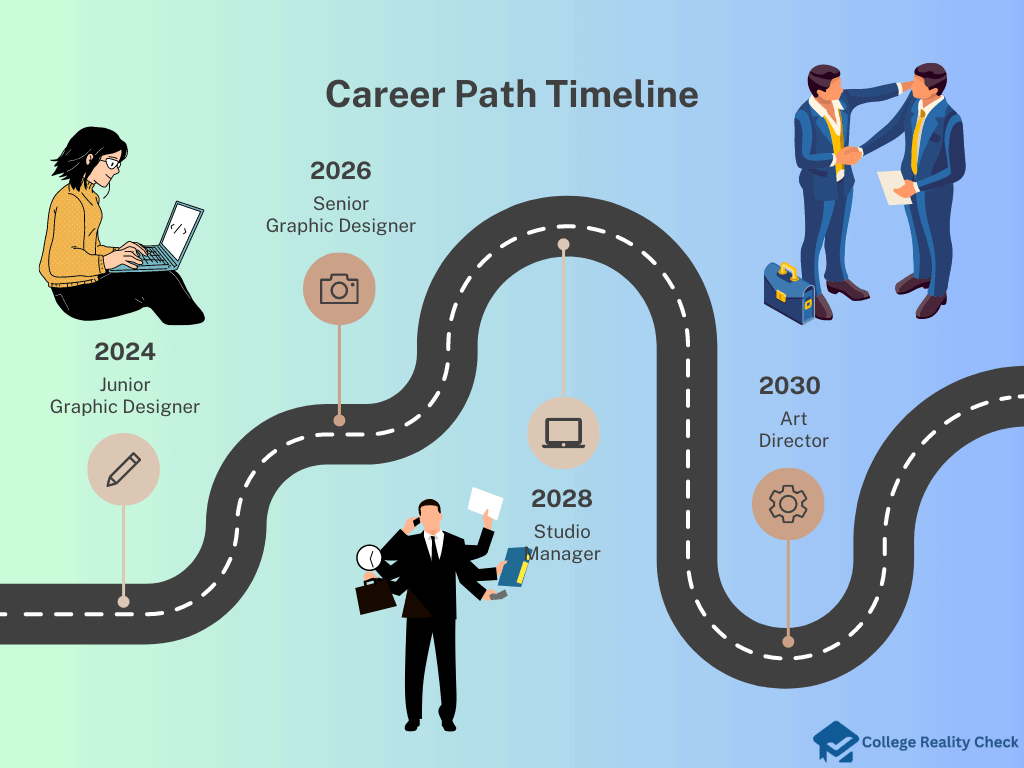
20 Career Path Examples
A career path, to put it simply, maps out the path toward a person’s ultimate goal career-wise.
Typically, it starts with an entry-level position and usually ends with a senior or executive-level position, with several different successive mid-level positions in between, depending on the small career goals to be met one after the other.
With the exception of maybe a few professions, there is no single path toward a particular position with a leadership or managerial role — you can take on a number of roles along the way, depending on your liking or the opportunities available.
The following are 20 examples of career paths you might want to consider looking into.
- Administration: Administrative Assistant > Executive Assistant > Office Manager
- Advertising: Advertising Account Coordinator > Assistant Account Executive > Account Executive > Senior Account Executive
- Communications: Public Relations Assistant > Public Relations Representative > Assistant Director of Public Relations > Director of Communications
- Creative: Graphic Designer > Senior Graphic Designer > Art Director > Marketing Director > Chief Creative Officer
- Culinary: Commis Chef > Station Cook > Sous Chef > Executive Chef
- Customer service: Customer Service Representative > Inside Salesperson > Outside Salesperson > Major Account Salesperson > Regional Sales Manager
- Firefighting: Firefighter > Crew Manager > Station Manager > Area Manager > Chief Fire Officer
- Hospitality: Server> Host or Hostess > Service Manager > Assistant General Manager > General Manager
- Human resources: Human Resources Assistant > Benefits Assistant > Benefits Specialist > Assistant Director of Human Resources > Director of Human Resources
- Law: Summer Associate > Junior Associate > Senior Associate > Partner > Managing Partner
- Law enforcement: Police Officer > Sergeant > Lieutenant > Captain > Major > Colonel > Deputy Chief of Police > Assistant Chief of Police > Chief of Police
- Management: Lead > Team Lead > Coordinator > Senior > Supervisor > Assistant Manager > Manager > Senior Manager > Assistant Director > Senior Director
- Marketing: Sales Representative > Territory Manager > District Manager > Regional Manager
- Media: Editorial Intern > Editorial Assistant > Assistant Editor > Associate Editor > Managing Editor > Editor in Chief
- Nursing: Certified Nursing Assistant > Intervention Project for Nurses > Nursing Associate > Registered Nurse > Nurse Administrator > Health Policy Expert
- Paralegal: Paralegal > Senior Paralegal > Paralegal Manager > Director of Practice Support
- Retail: Retail Sales Clerk > Assistant Manager > Department Manager > Store Manager > Regional Manager
- Software engineering: Junior Software Engineer > Software Engineer > Senior Software Engineer > Staff Software Engineer > Principal Software Engineer
- Teaching: Substitute Teacher > Teaching Assistant > School Counselor > School Principal > Director of Education
- Web development: Entry-Level Web Developer > Mid-Level Web Developer > Junior Web Developer > Senior Web Developer > Lead Web Developer
What are Career Tests?
Career tests, as the name implies, are assessments designed to help individuals, including job-seekers, currently working adults or students planning their prospective educational careers, identify career paths that are suitable for them according to various measures, often including qualifications, skills, interests, values and personality traits.
Anyone who is unsure as to which jobs to apply for are suitable to take career tests and could benefit from them, too.
Contrary to popular belief, individuals who have no idea of the best possible careers for them are not the only ones who could take advantage of career tests. Those who are unhappy with their present jobs could also give these exams a try.
Students could also benefit tremendously from undergoing career tests, including high school students who are preparing for higher education — by knowing which career path would work best for them, high school teeners might find it better to decide which major they should choose in preparation for their professional lives.
Just take a look at this anecdote included in a Kansas State University Study:
“For my high school we were required to take a career test to help us figure out what we wanted to do with our lives. Interior Design popped up third on my list. It seemed interesting so I began to research and found out it was perfect for me. I knew that I wanted to do something with art and that I wanted to travel” (Morgan et al, 2017).
As a matter of fact, there are career tests designed for K12 students, too!
Undergraduate students who entered college undecided or feel they committed to the wrong major, of course, may also take career tests to help them determine the right major to declare or which major to switch to before it’s too late — although it’s never too late to change majors in college, delayed switching could mean delayed graduation and added costs.
Types of Career Tests
Different types of career aptitude tests, or sometimes referred to as plainly “career tests”, exist, each one designed to determine prospective career choices by assessing a certain aspect of the test-taker.
As a result, it’s important to take the right exam according to what an individual finds important as far as choosing a job goes.
The following are some of the most common examples of career aptitude tests:
- Aptitude tests
- Intelligence or IQ tests
- Motivational tests
- Personality tests
- Pre-employment tests
- Skill tests
Although there are different types of career aptitude tests alright, many employers as well as individuals who would like to figure out which jobs are suitable for them tend to rely on 3 major popular ones, namely:
- The Myers-Briggs Type Indicator (MBTI) assessment – According to the Myers-Briggs Company, which obviously administers the MBTI and the MBTI Certification Program, more than 2 million people take the test every year, including many Fortune 500 companies. Simply put, the MBTI test helps the test-taker find the right career based on his or her personality type as well as strengths and preferences.
- The Keirsey Temperament Sorter (KTS-II) – At its core, the KTS-II is a test created to help individuals who take it to discover their personality types, thus allowing them to choose careers in which they are more likely to succeed and also be happy. Consisting of 70 forced-choice questions where test-takers must choose from the 2 available options, the exam measures personality type based on 4 temperaments: artisan, guardian, idealist, and rationalist.
- The Strong Interest Inventory (SII) – Simply put, the SII test is designed to help job seekers identify their respective work personalities by navigating their interests in various areas referred to by means of the acronym RIASEC: realistic, investigative, artistic, social, enterprising and conventional. It also allows individuals to identify the best careers for them among around 260 jobs that are related to their majors, current professions and leisure pursuits.
In a few, I will give you some of the best free and paid career tests that you might want to give a try.
Are Career Tests Accurate?
A career test can either be accurate or inaccurate, depending on various factors such as the validity of the examination as well as how and where it’s taken. Sometimes, a career test is inaccurate as a result of a bad assessment design, while other times it’s inaccurate because the test-taker is not taking it seriously or getting distracted.
The problem with taking an inaccurate career test is that it could keep you from having a satisfying career life.
Being given the wrong career options, for instance, might leave you feeling that none of the prospective jobs feel like they are right for you, or cause you to take on a job that you are very much likely to fail and be unhappy in.
It’s because of this exactly why the importance of taking an accurate career test cannot be asserted enough!
With hundreds of tests available out there, finding a reliable one can prove to be a challenge. But other than being accurate, it’s also vital for the career test to be easy to understand and focus on so that you may be able to give the right answers.
There are a number of things that can affect the accuracy of career test results, and they are as follows:
- Engagement – No matter how accurate a career test is, taking it is pointless if the person is not that motivated or investing in taking it and knowing what sort of jobs are suited for him or her. Without enough enthusiasm to answer the questions, inaccurate answers might be given, thus causing the results to be erroneous. It’s therefore essential to inform the test-taker that his or her performance, just like when taking any test, can impact the results of a career test.
- Administration – Besides the test-taker’s motivation or performance level, the way the career test is administered can also influence the outcome. It goes without saying that the exam should be taken where there are very little to no distractions. It’s vital for the individual to understand the questions to be able to give accurate responses, which is crucial in the establishment of jobs that match his or her personality type, interests, experiences and qualifications.
- Reliability – In some instances, the results of a career test are inaccurate because the examination itself is inaccurate. Failure of the exam to evaluate what it’s supposed to evaluate, naturally, can keep the individual from getting career recommendations that suit him or her the best. The only time a career test should be considered reliable and valid is if it has undergone rigorous evaluation during the assessment design process, preferably by recognized agencies.
10 Best Free Career Tests
Below are 10 of the top career tests you may take to help you determine which careers would suit you or even which academic major you should consider in college. Do take note that the online exams I will mention below are free to take, although some of them may require some fee for you to receive a comprehensive report.
- 123test: Career Aptitude Test – Based on the Holland Code personality types, this career aptitude test by 123test is designed to give insight into your job personality. It’s fun to take given that answers come with corresponding images — some people find a test more engaging if it has an eye-catching and entertaining interface.
- Assessment.com: MAPP Career Test – The MAPP in the name of the exam stands for motivational appraisal personal potential, and it’s suited not only for working adults and fresh graduates but also students. What makes the MAPP Career Test different from most is that it will give you your top 10 career areas as well as new options for you to try.
- CareerExplorer: The World’s Best Career Test – According to CareerExplorer, the questions of The World’s Best Career Test have been answered more than 500 million times. It will take you 30 minutes to answer the entire exam, which is designed to evaluate over 400 personality traits and recommend more than 1,500 jobs and careers.
- CareerFitter: Career Test – By assessing your personality, Career Test determines not only your matching careers but also your strengths and earning potential. According to CareerFitter, its exam has been refined for more than 20 years, and it boasts, too, that many corporations and professional sports teams around the world have used it.
- My Next Move: O*Net Interest Profiler – What’s nice about this career test is that it’s sponsored by the US Department of Labor. Requiring around 5 minutes of your time, you will have to rate each task on a rate from strongly dislike to strongly like, after which you will have to indicate your job zone based on education to know the best jobs for you.
- MyPlan.com: Values Assessment – The test works by asking you to rank various aspects of work that stand for the 6 underlying values in a professional setting, which then tells you which values are more important to you, thus helping you to determine which careers are ideal for you. The exam consists of 20 questions and takes about 12 minutes to complete.
- Rasmussen University: Career Aptitude Test – Making this exam by Rasmussen University, which is a private for-profit institution, unique and interesting is that you will use sliders to rate each of the given skills and interests. To refine the resulting matching careers, you can indicate the median annual salary, projected job growth and education.
- The Princeton Review: Career Quiz – You will have to answer a total of 24 questions when taking the Career Quiz of The Princeton Review, each one requiring you to choose between 2 careers (example: I would rather be a writer or I would rather be an elected official). It will indicate the interests you are drawn to as well as the jobs suited for them.
- Truity: The Big Five Personality Test – When taking The Big Five Personality Test, it’s a must that you dig deep and assess yourself thoroughly because you will be asked to rate each statement, from inaccurate, neutral to accurate, which is why the site recommends answering based on how you really are and not how you would like to be.
- What Career is Right for Me: Career Test – The entire test consists of 5 different steps: skills, interests, work style, values and requirements. With the exception of requirements where you will be asked questions about your education and salary requirement, all the other parts call for rating each entry from not at all important to very important.
Top 10 Career Tests and Quizzes
Here are 10 career tests that can cost anywhere from as low as $10 to as high as $700 plus, depending on how comprehensive the report is.
The quiz proper of some of the exams listed below may be taken without you shelling out money alright, but the results are only accessible after providing your credit card number or PayPal account details.
- CareerHunter: Full Access – Costing almost $80, the Full Access consists of a total of 6 different tests, and they are Career Interest Test, Work Personality Test, Career Motivators Test, Abstract Reasoning Test, Numerical Reasoning Test and Verbal Reasoning Test. However, you can choose to take each exam separately, each one costing $15.99.
- CareerPlanner.com: Career Test – You will have to answer a total of 180 true or false questions, which should take you less than 20 minutes to complete. After which, you will be provided with a comprehensive report that’s 15 pages long, which CareerPlanner.com will save for you so that you can come back to it after 5 or 10 years. The cost? $32.
- Gallup Store: CliftonStrengths 34 – Formerly known as StrengthsFinder, CliftonStrengths 34, which costs almost $60 on Gallup Store, will tell you your top 5 strengths out of 34, hence, the title of the test. It also provides supporting videos and other materials on navigating blind spots and managing your lesser strengths, among many others.
- JobQuiz: Find Your Career Match – Having a full analysis that costs almost $7 for students and almost $10 for adults, the examination is specifically meant to help people find modern-day jobs that match their skills and behaviors, while also considering stress and limitations in the process. The test takes around 10 to 15 minutes to complete.
- Johnson O’Connor Research Foundation: Aptitude Testing and Research – The test, which has been around since 1922, is designed for high school students, college students, college graduates and working adults. Unlike other tests, it’s conducted in person. And because it gives a comprehensive report, it has a $700 plus price tag.
- Keirsey: Temperament Sorter – As the name suggests, this exam, which costs $30, is based on Keirsey Temperament Theory, which we briefly talked about not too long ago in this post. But instead of giving specific career-related advice, it will give insight into your personality, which can then help you determine some of the best jobs for you.
- Self-Directed Test: John Holland’s SDS – Taking around 20 minutes to complete, the SDS is based on the RIASEC theory and has a total of 87 questions designed to assess the aspirations, competencies, interests and other self-estimates of the test-taker. Costing almost $10, the types of reports generated can range from standard, student to veteran.
- SixSeconds: SEI Development Report – While possessing the right skills is important in the workplace, having a high emotional intelligence (EQ) is crucial, too, as it allows you to guide your own actions and behaviors as well as influence others. The SEI Development Report is created to help determine your EQ and make improvements as necessary.
- The Enneagram Institute: The RHETI Test – RHETI stands for Riso-Hudson Enneagram Type Indicator, and it’s meant to help you determine your personality type — there are a total of 9 different but interconnected Enneagram personality types, and it’s not uncommon for you to have a little from each. Taking the RHETI Test will cost you $12.
- The Myers & Briggs Foundation: MBTI Instrument – There is no denying that the MBTI instrument is considered one of the most popular career assessment tests, which is why it’s used by many companies and career coaches. The cost of taking this test can range anywhere from $20 to $175 if you choose to have the career report, too.
References:
- Porter, R., Umbach, P. (2006). College Major Choice: An Analysis of Person-Environment Fit. Research in Higher Education, 444.
- Bobek, B., Schnieders, J. (2022). Characteristics of College Majors High School Students Want to Explore. ACT Research, 2.
- Morgan, K., Jackson, C., Reeves, M., Reece Valadez, C. (2017). How Human Ecology Students Choose a Major. Family and Consumer Sciences Research Journal, 252.
Disclaimer: The views and opinions expressed in this article are those of the authors and do not necessarily represent those of the College Reality Check.





